The Repercussions of Concussions

The brain is the most important organ in our bodies; it controls everything we do. So, even “minor” brain injuries can have long-lasting impacts on one’s quality of life and ability to function. National Concussion Awareness Day on Sept. 20 aims to share the often-overlooked dangers of the most common form of traumatic brain injury (TBI).
Traumatic brain injuries are any injury that affects the brain’s ability to function normally. They can result from blows to the head, sudden and powerful jolts, or penetrating injuries like gunshot wounds. In 2020, they caused 64,000 deaths. And while concussions are considered “mild” TBIs because they’re not life-threatening, they can still have serious repercussions.
Concussions are among the most common injuries we see at GA Injury Advocates.
Though many people associate the condition with football players, boxers, and youth sports, other accidents cause concussions daily. In fact, both car accidents and workplace injuries account for more concussions than sports injuries.
A concussion occurs when the brain rapidly moves back and forth inside the skull. After this violent movement, the brain can experience bruising, bleeding, or tearing of the tissue and nerves. Contrary to popular belief, you also don’t necessarily have to hit your head to suffer from a concussion. Many car accident victims experience them due to the sudden deceleration that happens in a crash.
No matter how a concussion happens, the symptoms remain the same, shares Marietta Accident Attorney Ramiro Rodriguez, Jr.
Concussions often, but not always, result in loss of consciousness and amnesia, even if they are very brief. The person may only be unconscious for a moment or two, and the memory loss typically involves the time shortly before and after the crash. The worse the loss of consciousness or memory is, the more severe the concussion.
People with concussions are often confused, nauseous, or dizzy immediately after the accident. They also frequently experience headaches, confusion, tiredness, and sensitivity to light and noise. Many people don’t know how to explain their symptoms and may describe themselves as “not feeling right.” And some people with concussions may not recognize the signs. You will be able to identify a concussed person if they appear stunned, confused, clumsy, or slow.
Anyone displaying these signs should seek medical attention immediately.
But symptoms of a concussion sometimes do not appear for hours or even days. If symptoms start sometime after potential head trauma, you should visit the emergency room for help.
The initial symptoms of a concussion can last throughout the recovery period. Many people also notice changes in mood, which can include increased irritability, anger, anxiousness, or depression. Insomnia is also common, while seizures are possible but rare. Importantly, no two concussions are the same, even when they involve the same person.
Fortunately, about 80% of concussions resolve within two weeks, but others can persist for months or years. That’s why it’s crucial to seek medical care as soon as possible after an accident and follow up with any change in symptoms. I see clients with this condition constantly, so take it from me — there’s no such thing as “just” a concussion. Each one deserves to be treated with care and urgency.

